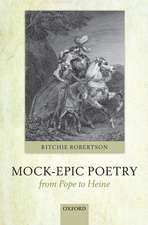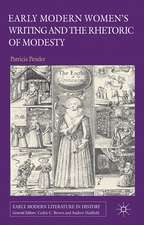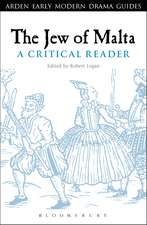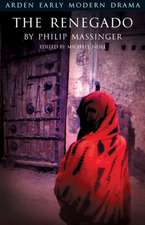The Reception of Robert Burns in Europe: The Reception of British and Irish Authors in Europe
Editat de Professor Murray Pittocken Limba Engleză Hardback – 18 iun 2014
Din seria The Reception of British and Irish Authors in Europe
- 44%
 Preț: 2166.85 lei
Preț: 2166.85 lei - 36%
 Preț: 192.42 lei
Preț: 192.42 lei -
 Preț: 189.28 lei
Preț: 189.28 lei -
 Preț: 192.15 lei
Preț: 192.15 lei -
 Preț: 188.34 lei
Preț: 188.34 lei - 34%
 Preț: 229.75 lei
Preț: 229.75 lei -
 Preț: 193.96 lei
Preț: 193.96 lei -
 Preț: 398.19 lei
Preț: 398.19 lei -
 Preț: 192.99 lei
Preț: 192.99 lei -
 Preț: 190.44 lei
Preț: 190.44 lei - 34%
 Preț: 230.90 lei
Preț: 230.90 lei -
 Preț: 586.90 lei
Preț: 586.90 lei -
 Preț: 190.81 lei
Preț: 190.81 lei - 36%
 Preț: 192.15 lei
Preț: 192.15 lei - 36%
 Preț: 192.42 lei
Preț: 192.42 lei - 44%
 Preț: 1317.79 lei
Preț: 1317.79 lei - 44%
 Preț: 1317.79 lei
Preț: 1317.79 lei - 44%
 Preț: 1433.99 lei
Preț: 1433.99 lei - 35%
 Preț: 193.18 lei
Preț: 193.18 lei -
 Preț: 192.15 lei
Preț: 192.15 lei -
 Preț: 229.37 lei
Preț: 229.37 lei - 17%
 Preț: 329.44 lei
Preț: 329.44 lei -
 Preț: 1893.83 lei
Preț: 1893.83 lei -
 Preț: 1667.84 lei
Preț: 1667.84 lei - 14%
 Preț: 1471.24 lei
Preț: 1471.24 lei - 36%
 Preț: 1783.83 lei
Preț: 1783.83 lei
Preț: 1667.84 lei
Preț vechi: 2980.50 lei
-44% Nou
Puncte Express: 2502
Preț estimativ în valută:
319.13€ • 334.15$ • 264.71£
319.13€ • 334.15$ • 264.71£
Carte tipărită la comandă
Livrare economică 10-24 aprilie
Preluare comenzi: 021 569.72.76
Specificații
ISBN-13: 9781441170316
ISBN-10: 1441170316
Pagini: 416
Dimensiuni: 156 x 234 x 28 mm
Greutate: 0.75 kg
Ediția:New.
Editura: Bloomsbury Publishing
Colecția Bloomsbury Academic
Seria The Reception of British and Irish Authors in Europe
Locul publicării:London, United Kingdom
ISBN-10: 1441170316
Pagini: 416
Dimensiuni: 156 x 234 x 28 mm
Greutate: 0.75 kg
Ediția:New.
Editura: Bloomsbury Publishing
Colecția Bloomsbury Academic
Seria The Reception of British and Irish Authors in Europe
Locul publicării:London, United Kingdom
Caracteristici
Includes
bibliographies
of
major
translations
in
each
country
and
a
timeline
of
Burns's
reception
in
Europe
Notă biografică
Murray
Pittockis
Bradley
Professor
of
English
Literature
at
the
University
of
Glasgow,
a
Fellow
of
the
Royal
Society
of
Edinburgh,
and
a
prizewinner
of
that
society
and
of
the
British
Academy,
as
well
as
winning
or
being
nominated
or
shortlisted
for
over
ten
other
literary
prizes.
He
is
the
author
or
editor
of
a
number
of
prominent
works
on
Jacobitism
and
Romanticism,
includingScottish
and
Irish
Romanticism(2008,
2011),Robert
Burns
in
Global
Culture(2011)
andMaterial
Culture
and
Sedition:
Treacherous,
Objects,
Secret
Places(2013).
He
is
currently
editing
theScots
Musical
Museumin
the
AHRC
Collected
Burns
edition.
Cuprins
Series
Editor's
PrefaceElinor
ShafferAcknowledgementsList
of
ContributorsAbbreviationsTimeline
of
the
European
Reception
of
Robert
Burns,
1795-2012Pauline
MackayIntroduction:
'The
mair
they
talk,
I'm
kend
the
better':
Burns
and
EuropeMurray
PittockGermanLost
in
Translation:
Robert
Burns
in
Germany
Frauke
Reitemeier
German-Language
Reception
of
Robert
Burns
in
Austria
Eleoma
Bodammer
The
Reception
of
Robert
Burns
in
Switzerland
Silvia
MergenthalFrenchFrom
Bard
to
Boor:
The
Critical
Reception
of
Robert
Burns
in
France
Dominique
DelmaireItalian'Compar'd
to
these,
Italian
trills
are
tame':
A
Century
of
Robert
Burns
in
Italy,
1869-1972
Francesca
SagginiSpanishRobert
Burns
and
Spanish
Letters
Andrew
MonnickendamRussianThe
Reception
of
Robert
Burns
in
Russia
Natalia
Kaloh
VidUkrainianThe
Reception
of
Robert
Burns
in
Ukrainian
Culture
Hanna
DykaHungarian'His
voice
resonated
for
the
longest
time
in
our
literature':
Burns
and
'popular
poetry'
in
Nineteenth-century
Hungary
Veronika
RuttkayCzechCzech
Translations
of
Burns:
Constructing
National
Identity?
Martin
ProcházkaPolishThe
Reception
of
Robert
Burns
in
Poland
Miroslawa
ModrzewskaSloveneRobert
Burns's
Reception
in
Slovenia
Valentina
BoldNorwegianBurns
in
Norwegian:
A
Man
of
Opposition
Jahn
Holljen
ThonMusicThe
Reception
of
Robert
Burns
in
Music
Kirsteen
McCue
and
Marjorie
RycroftBibliographyIndex
Recenzii
In
her
preface
to
this
book,
Elinor
Shaffer
(editor
of
the
series
in
which
the
book
appears)
argues
that
translation
histories
show
the
complex
interweaving
of
ideas,
periods,
and
peoples
and
illuminate
an
author
by
refracting
unexpected
attributes
in
texts
one
takes
for
granted.
The
14
critics
assembled
by
Pittock
(Univ.
of
Glasgow,
Scotland)-among
them
Silvia
Mergenthal,
Francesca
Saggini,
Marjorie
Rycroft,
Natalia
Kaloh
Vid,
and
Frauke
Reitemeier-bring
to
this
volume
a
broad
expanse
of
knowledge,
location,
and
focus
and
in
so
doing
weave
a
fascinating
critical
tapestry.
Anchored
by
a
timeline
of
translations
(1798-2012),
the
volume
tracks
reception
all
over
Europe
and
into
music,
revealing
the
unexpected
at
every
turn.
Burns's
work
contributed
to
the
development
of
nationalism,
picking
up
on
the
influence
of
Ossian.
But
at
times
it
failed
to
connect
or
found
a
space
(e.g.,
Spain)
already
occupied
by
Sir
Walter
Scott.
In
France,
Burns's
reputation
soared
and
dived.
Elsewhere
(Germany
and
Switzerland),
it
engaged
sporadically,
according
to
the
surge
in
ideas
or
familiarity
with
dialects.
Russia
claimed
itself
as
the
only
country
that
understood
him;
in
Austria,
Burns's
work
was
once
restricted
to
"reliable
citizens."
Burns,
it
seems,
lives
dangerously-and
always
interestingly-abroad.
An
excellent
resource.Summing
Up:Highly
recommended.
Graduate
students,
researchers,
faculty.


















